One of the most important ideas of the 20th Century came from a rather odd but terribly brilliant man, the Cambridge Mathematician and Philosopher Alan Turing.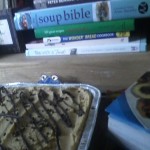
Normally, I would spend a few minutes telling you stories about Turing, but Wode Toad is holding a tray of brownies with peanut butter cream frosting hostage. (Thanks, Jodie—we stand in awe to your magical skills. The lemon bars last month were great, too)
The problem this mathematician was facing was how to design a machine that could answer your mathematical questions. His solution was to rethink the problem. Most of us would have thought of trying to program answers into the machine, so that you had a huge number of answers like “2+2=4.”
The problem is that the amount of information to be programmed in is not just huge, it’s prohibitive.
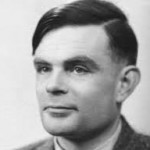 In a paper “On Computable Numbers, with an Application to the Entscheidungs problem,” Turing rethought the problem. Imagine a movable machine and a long line of squares laid out on paper strip. We call this imaginary device a Turing Machine. Put the machine at the second square, and teach it that “+2” mean to travel two squares, which put it at the fourth. Put another way, what the machine needs to know is not that “2+2=4,” but that if it is on second and somebody yells “Plus Two!” it needs to hustle two spaces, which puts it on the four.
In a paper “On Computable Numbers, with an Application to the Entscheidungs problem,” Turing rethought the problem. Imagine a movable machine and a long line of squares laid out on paper strip. We call this imaginary device a Turing Machine. Put the machine at the second square, and teach it that “+2” mean to travel two squares, which put it at the fourth. Put another way, what the machine needs to know is not that “2+2=4,” but that if it is on second and somebody yells “Plus Two!” it needs to hustle two spaces, which puts it on the four.
If, instead of the infinite line of squares, we can allow the machine to have an astronomically high number of binary combinations, we have the basis of modern computing.
The key here is this: don’t think of the machine as knowing an infinite amount of little things; it only needs to know one thing, one very important thing.
It needs to know what to do next.
At roughly the same time and the same place, the philosopher 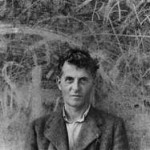 Ludwig Wittgenstein applied a similar idea to how language works. Languages are not logical representational structures; to use a language is to understand that when Wode Toad mutters “Order Up,” my response should be to finish the presentation (he ignores that) and get it to one of our guests.
Ludwig Wittgenstein applied a similar idea to how language works. Languages are not logical representational structures; to use a language is to understand that when Wode Toad mutters “Order Up,” my response should be to finish the presentation (he ignores that) and get it to one of our guests.
What I need to know is what to do next.
This week, I have discovered that this fundamental question seems to be vexing a large number of my close friends, and the Bistro’s staff and patrons, and seems to be at the core of my own perplexity. What to do next?
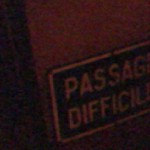 Our world keeps changing, and all the plans and dreams we thought we have keep shifting. Everybody I know seems to be either at the beginning of adulthood looking for how to start or in the middle looking to start anew. The ground beneath our feet, the markets and workplaces, even the professions themselves seem to be at least shifting, and possibly evaporating. This next week, a brand new crop of graduates will be cast out into the world (geworfenheit, where there is wailing and gnashing of teeth).
Our world keeps changing, and all the plans and dreams we thought we have keep shifting. Everybody I know seems to be either at the beginning of adulthood looking for how to start or in the middle looking to start anew. The ground beneath our feet, the markets and workplaces, even the professions themselves seem to be at least shifting, and possibly evaporating. This next week, a brand new crop of graduates will be cast out into the world (geworfenheit, where there is wailing and gnashing of teeth).
The challenge is knowing what to do next.
We are all in the uncomfortable position of knowing we must move, 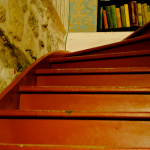 but not knowing to where. We found ourselves thrown, but are still figuring out where to go, perhaps even still spinning and trying to figure out which direction to stand up. If we knew what we wanted, we might be able to figure out how to get there, but we don’t even know that.
but not knowing to where. We found ourselves thrown, but are still figuring out where to go, perhaps even still spinning and trying to figure out which direction to stand up. If we knew what we wanted, we might be able to figure out how to get there, but we don’t even know that.
At this point in my weekly entrée, I wish I had an answer to neatly tie this up, serve you dessert and coffee, and send you back into the night like the proverbial existentialist sparrow.
I wish I did.
I do not.
At best, I have two observations.
Remember that there is the dream and there is the plan.
The dream is not the plan, but may shape it. Since the plan may or may not fail, you had might as well make the dream big. The dream will tell you what you want, so don’t be a Jeff-says-I-can’t with your dreams. Plans will always be cut down to size by the actual circumstances, reality will force you to improvise, so don’t begin by cutting the dream down to size.
Let it be grand and glorious and very much you.
You don’t need to have figured out everything, just what to do next.
…and if you can’t figure out what’s next, sometimes if you just start you will figure out where you are going before you get there.
It’s how I got to the Philosophy Bistro.
We don’t know how Wode Toad got here; I think he is a fugitive from something, but is quite vague. He also denies having manipulated the Asian currency markets, whatever that means.
Myself, I haven’t figured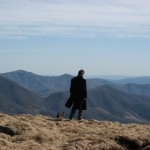 out the next step. I seem to have become boxed in a dead-end, or rather trapped like a wolf in a pit. So, I have decided to take a step back. This summer, I will be backtracking to the city I lived in for a big chunk of the 70s, Tübingen in Germany. Once upon a time, I assumed that I would either live there or in New York or London. Maybe the open road will give me an idea of where I am going before I get there.
out the next step. I seem to have become boxed in a dead-end, or rather trapped like a wolf in a pit. So, I have decided to take a step back. This summer, I will be backtracking to the city I lived in for a big chunk of the 70s, Tübingen in Germany. Once upon a time, I assumed that I would either live there or in New York or London. Maybe the open road will give me an idea of where I am going before I get there.
One dream I have accomplished though, I managed to become who I ![]() am, and I have had the good luck to be, your affectionate friend,
am, and I have had the good luck to be, your affectionate friend,

Thanks for speaking so beautifully about where so many of us are right now in our lives. Once upon a time, I too assumed that I would live in Germany and since last summer I can see myself in New York. I hope the open road will indeed give you an idea of where you are going. Here’s hoping you might like a companion for the journey. I love you.